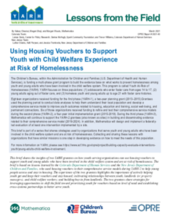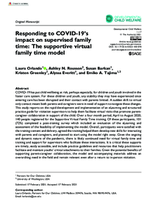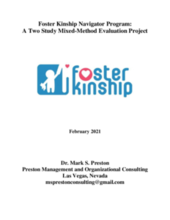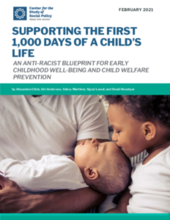Displaying 11 - 20 of 437
This study aimed to better understand the role that Court-Appointed Special Advocates (CASAs) play in the lives of transition-age youth (TAY) by asking participants about the nature of their relationships with their CASAs, and the extent to which their CASAs helped prepare them for independent living.
This study experimentally tested proximal outcomes of Connecting, a low-cost, self-directed, family-based substance-use prevention program for foster families.
This article examines pilot results for the culturally adapted Weaving Healthy Families (WHF) program to promote resilience and wellness while preventing substance abuse and violence among Native American (NA) families.
The present study seeks to examine the goals that carers who are looking after children with emotional and/or behavioural difficulties set at the start of an intervention, the Reflective Fostering Programme, designed to support them.
This study describes the challenges faced by a child protection agency and community organization who partnered to reduce the overrepresentation of Black children reported to the child protection agency through implementation of a parenting support program.
This brief is part of a series that shares strategies used by organizations that serve youth and young adults who have been involved in the child welfare system and are at risk of homelessness. It examines a multi-phase grant program to build the evidence base on what works to prevent homelessness among youth and young adults who have been involved in the child welfare system in the U.S.
The current study aimed to identify the critical components of an efficacious dyadic relationship enhancement intervention for siblings in foster care through a secondary analysis of fidelity of implementation and trial outcome data.
This study reports on the rapid development and implementation of an eLearning and structured practice guide for visitation supervisors to help them facilitate virtual visits that promote parent-caregiver collaboration in support of the child.
This qualitative evaluation was to determine the level of fidelity of Clark County Nevada’s Foster Kinship navigator program to its navigator program manual and to ascertain if Foster Kinship’s navigator program for formal kinship families met the minimum standard for promising practice.
This report offers a blueprint for creating equity-centered, anti-racist policies that support the health and well-being of children and families of color.




